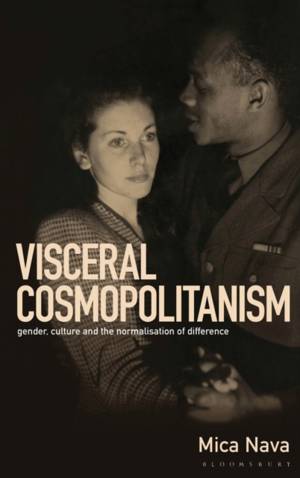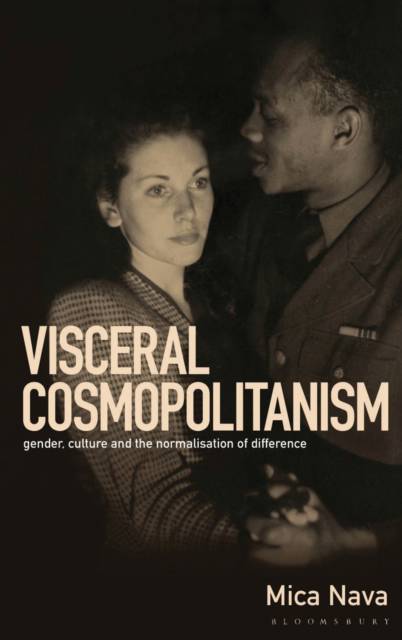
Je cadeautjes zeker op tijd in huis hebben voor de feestdagen? Kom langs in onze winkels en vind het perfecte geschenk!
- Afhalen na 1 uur in een winkel met voorraad
- Gratis thuislevering in België vanaf € 30
- Ruim aanbod met 7 miljoen producten
Je cadeautjes zeker op tijd in huis hebben voor de feestdagen? Kom langs in onze winkels en vind het perfecte geschenk!
- Afhalen na 1 uur in een winkel met voorraad
- Gratis thuislevering in België vanaf € 30
- Ruim aanbod met 7 miljoen producten
Zoeken
Visceral Cosmopolitanism Gender, Culture and the Normalisation of Difference
Gender, Culture and the Normalisation of Difference
Mica Nava
Hardcover | Engels
€ 296,95
+ 593 punten
Uitvoering
Omschrijving
Cultural theorist Mica Nava makes an original and significant contribution to the study of cosmopolitanism by exploring everyday English urban cosmopolitanism and foregrounding the gendered, imaginative and empathetic aspects of positive engagement with cultural and racial difference. By looking at a wide range of texts, events and biographical narratives, she traces cosmopolitanism from its marginal status at the beginning of the twentieth century to its relative normalisation today. Case studies include the promotion of cosmopolitanism by Selfridges before the first world war; relationships between white English women and 'other' men -- Jews and black GIs -- during the 1930s and 1940s; literary, cinematic and social science representations of migrants in postcolonial Britain; and Diana and Dodi's interracial romance in the 1990s. In the final chapter, the author draws on her own complex family history to illustrate the contemporary cosmopolitan London experience.Scholars have tended to ignore the oppositional cultures of antiracism and social inclusivity. This groundbreaking study redresses this imbalance and offers a sophisticated account of the uneven history of vernacular cosmopolitanism.
Specificaties
Betrokkenen
- Auteur(s):
- Uitgeverij:
Inhoud
- Aantal bladzijden:
- 224
- Taal:
- Engels
Eigenschappen
- Productcode (EAN):
- 9781845202422
- Verschijningsdatum:
- 1/09/2007
- Uitvoering:
- Hardcover
- Formaat:
- Genaaid
- Afmetingen:
- 168 mm x 241 mm
- Gewicht:
- 453 g

Alleen bij Standaard Boekhandel
+ 593 punten op je klantenkaart van Standaard Boekhandel
Beoordelingen
We publiceren alleen reviews die voldoen aan de voorwaarden voor reviews. Bekijk onze voorwaarden voor reviews.









